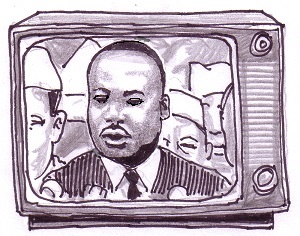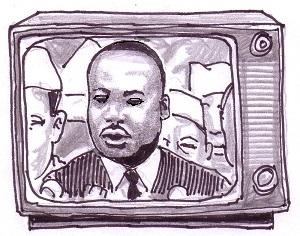

“New wine is poured into fresh wineskins” (Mark 2:22).
Heb 5:1-10; Mark 2:18-22
When Jesus’ critics failed to counter his gracious message, spectacular miracles and obvious authority over unclean spirits, they did what enemies always do: They attacked him personally. They first scolded his disciples for not observing the weekly fast the followers of John the Baptist and the Pharisees kept. But their real message was: “Your master is a law breaker and a scandal, unlike the righteous prophet John and the pious Pharisees.” The other synoptics add that they called Jesus a “drunkard and a glutton.”
Their campaign to undermine Jesus began in Galilee and grew more vicious as he traveled south to Jerusalem. He was in league with the devil, he violated the sabbath, he touched lepers, he consorted with pagans, tax collectors, prostitutes. He didn’t pay Roman taxes, threatened the temple, was a heretic and a blasphemer, a dangerous subversive who deserved to die. Lost, misdirected and distorted in controversy was Jesus’ message of repentance and Good News, especially for the poor, the oppressed and the outcast.
What his enemies really opposed was change. Jesus preached a radical renewal to uncover the heart of the Covenant, free of the legalism and institutional entrenchment, corruption of money and complicity of power that had turned prayer into a business, God’s mercy into fear of punishment. Love was the new wine that needed fresh wineskins, a new way of living as God’s beloved community.
God’s Word comes to us on the day we commemorate the life and death of Dr. Martin Luther King Jr. This coincidence invites reflection. We know now that Dr. King was a leader whose personal weaknesses were exposed and exploited by the FBI and his political enemies to undermine the Civil Rights Movement. Suffering from exhaustion and depression, blackmailed and threatened at every turn, Dr. King still pressed on to help secure justice for African Americans he himself would not live to see. Assassinated at age 39, he, like other martyrs of the movement, found personal redemption in surrendering his life to a cause greater than himself.
The author of the Letter to the Hebrews may have been addressing the many calumnies against Jesus generations later when he compared him to a high priest who shares the same human weaknesses of the people he represents. “Son though he was,” he writes, “he learned obedience through what he suffered; and when he was made perfect, he became the source of salvation for all who obeyed him” (5:10). Jesus came to change the world, not by force or fiat, but through the human community he entered, embraced and redeemed.
The change we face now is to fulfill the promise of racial justice still waiting 53 years after King’s death. This change is a potent, effervescent and life-giving wine that will require both expansive institutional and social wineskins and, most importantly, a change of heart. Isn’t this good news we have longed for and now must help bring about?
Advertisement




